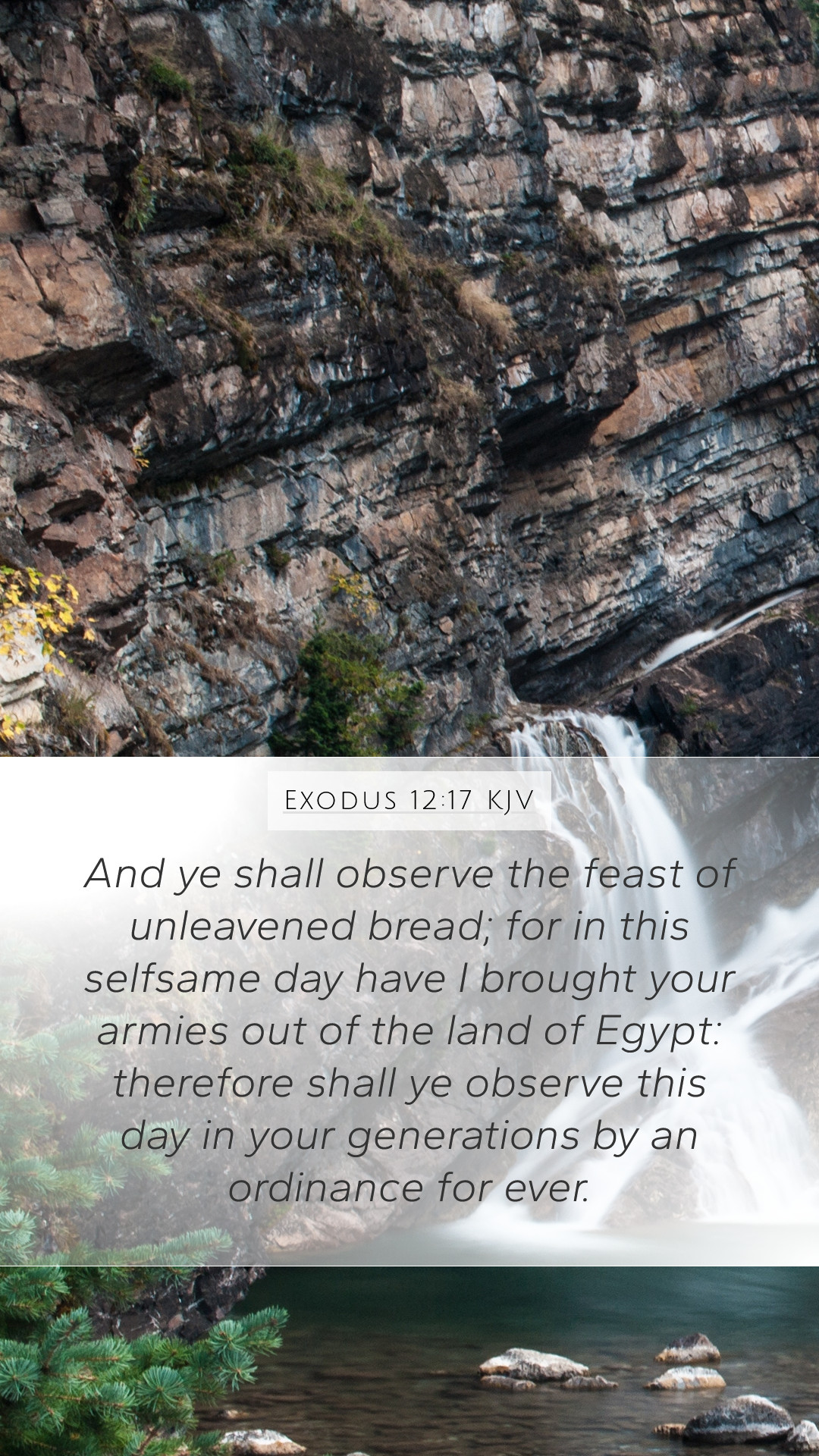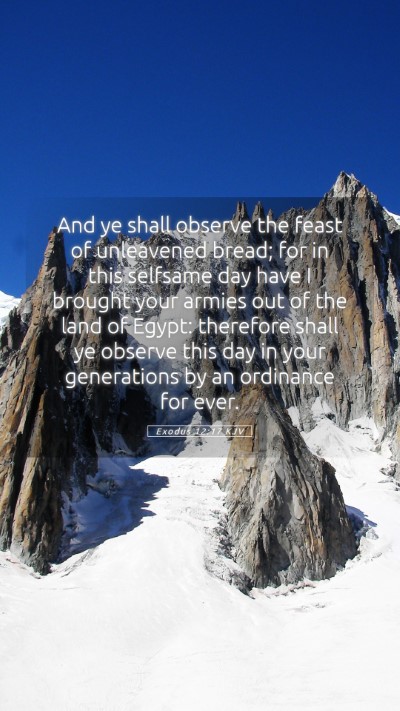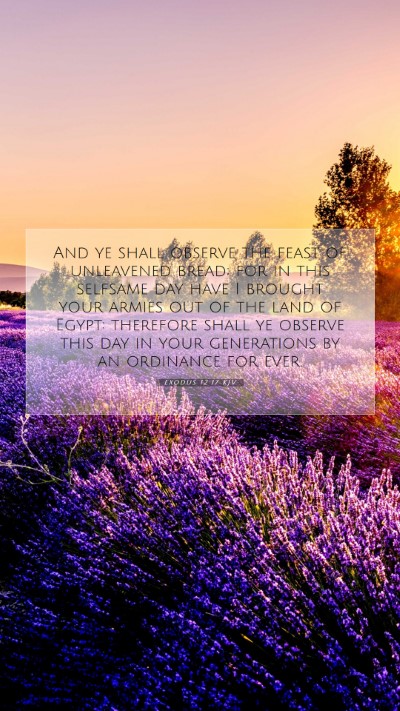Understanding Exodus 12:17 - A Comprehensive Exegesis
Exodus 12:17 states: "And ye shall observe the feast of unleavened bread; for in this selfsame day have I brought your armies out of the land of Egypt: therefore shall ye observe this day in your generations by an ordinance forever." This verse carries significant meaning within the broader context of the Exodus narrative, symbolizing deliverance, obedience, and the institution of a memorial feast.
Bible Verse Meanings
The meaning of this Bible verse centralizes around the act of remembrance and the importance of observing the feast of unleavened bread as commanded by God. This event marks a pivotal moment in Israel's history, signifying angelic protection and the departure of the Israelites from bondage. Such observance serves both as a commandment and a means to instill faith and awareness of God's deliverance across generations.
Biblical Commentary Insights
Matthew Henry's Commentary
Matthew Henry emphasizes the significance of this feast as an ordinance that promotes a collective memory of Israel's liberation from Egypt. He argues that the feast should be observed with solemnity, reinforcing the value of thanksgiving and remembrance of divine intervention in historical deliverance. The unleavened bread symbolizes purity and sanctification, reminding the Israelites of their need to remain spiritually ready as they journeyed to freedom.
Albert Barnes' Notes
Albert Barnes provides a thorough textual analysis, highlighting the phrase "in this selfsame day." He explains that this timing is pivotal as it marks both the physical and spiritual liberation of Israel. Barnes elaborates on the significance of perpetual observance, indicating that the rituals serve as a teaching mechanism for future generations, aiming to increase their understanding of God’s enduring power and fidelity.
Adam Clarke’s Commentary
Adam Clarke contextualizes the feast as not merely a remembrance but as a directive from God, intended to ensure that the custom of observing the unleavened bread becomes ingrained within Israelite culture. He interprets this command as a means of forming a national identity rooted in divine experiences and covenants, thus ensuring that they acknowledge God's sovereignty through obedience and remembrance.
Scripture Analysis and Interpretation
This verse not only directs the Israelites in their observance of the feast but also indicates an important theological concept: that God liberates and expects a response from His people. Observance of this feast becomes an act of faith, gratitude, and a symbol of commitment to God. In this light, the feast is both historical and prophetic, predicting the future fulfillment of God’s plan for salvation through Jesus Christ, who is often symbolized as the "Lamb of God."
Application of the Verse to Daily Life
Understanding Scripture, specifically Exodus 12:17, has practical applications in the lives of believers today. Observing sacred traditions reminds modern Christians of God's faithfulness and grace. Engaging in Bible study groups centered on such texts can foster a deeper understanding and personal application of faith principles. The lessons drawn from this verse can encourage Christians to live lives of trust and reliance on God’s promises.
Further Reflections and Insights
- Faithfulness: The act of observance illustrates a commitment to remembering God's acts of salvation.
- Generational Teaching: It signifies the importance of passing down the faith and stories of God's deliverance to future generations.
- Identity Formation: Participation in remembrances reinforces one's identity as part of God’s chosen people.
Cross References
- Exodus 13:6-10: Instructions on further observances related to the feast of unleavened bread.
- 1 Corinthians 5:7-8: New Testament interpretation of unleavened bread in relation to Christ as our Passover.
- Deuteronomy 16:3: Further emphasis on eating unleavened bread in remembrance of the Exodus.
Conclusion
In conclusion, Exodus 12:17 serves as a foundational verse within the biblical framework of deliverance and faithfulness. Through the lens of various biblical commentaries and a careful study of its implications, we gain deeper insights into what it means to remember God's redemptive acts and to live out our faith in obedience. As readers engage in their own Bible study lessons, seeking to understand difficult Bible passages and finding meaning in historical contexts, Exodus 12:17 remains a powerful reminder of God’s covenant love and deliverance.


